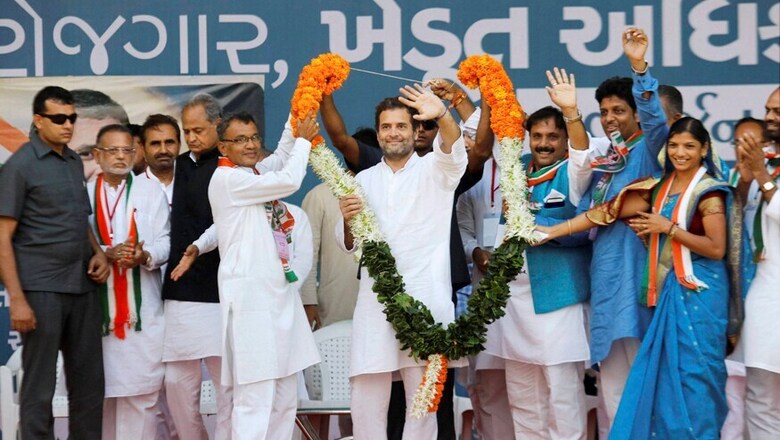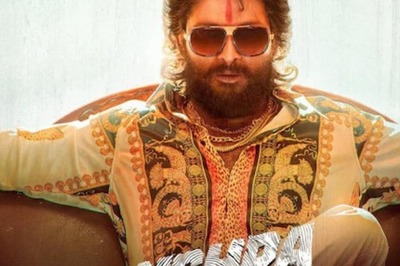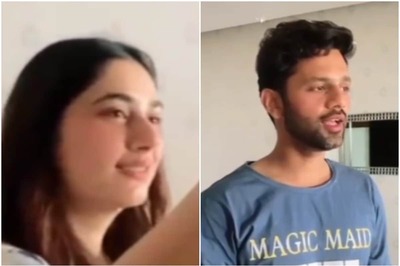
views
New Delhi: 'What have been your gains from the Emergency?’ was the first question flung at Indira Gandhi by a journalist waiting at the airport. The former Prime Minister was on her maiden visit to London after a comprehensive electoral defeat back home post Emergency.
Looking at the scribes squarely in the eye, in a level voice, Indira Gandhi replied, “In those 21 months, we comprehensively managed to alienate all sections of Indian people.”
Former President Pranab Mukherjee recalled in his valedictory speech at the Parliament Central Hall earlier this year and said, "Self-correction in such situations is always a better option than self-justification.”
Thirty years later, Rahul Gandhi seems to be borrowing a leaf out of his grandmother's book as he prepares to lead the party in the 2019 general elections, after a humiliating defeat in 2014.
The Gandhi scion has repeatedly admitted to the arrogance of UPA-II as one of the possible reasons for the party's downfall.
Speaking to members of the business community and intellectuals in Vadodara, Rahul said that the 2014 defeat could not have helped the party more. "Itni buri tarah hare ki pit-pitkar hamein akal aa gayi", Gandhi told the audience.
"My ideology is not BJP-RSS and I will fight them. But I can't think of ridding India of BJP, RSS," said Rahul while campaigning in Gujarat.
This is as much a far cry from the votaries of 'saffron terror' in the Congress as it is a message to the BJP's call for 'Congress mukt Bharat'.
Dumped by the electorate, politicians in India have often redeemed themselves by seeking forgiveness. Rahul Gandhi is simply doing an encore.
Voting out a powerful leader or a party in government is a catharsis of sorts. It gives a sense of empowerment to the electorate in having humbled the high and the mighty.
Similarly, for politicians, expression of humility and acceptance of failure in various forms is part of the rich repertoire of mass communication evolved over years and passed on from one generation to the next.
In 1998, while RLD leader Ajit Singh lost the Lok Sabha elections from Baghpat, Sompal Shastri, a protégé of Chaudhary Charan Singh also met with the same fate.
Having vented their anger, soon the Jats were feeling contrite for having inflicted defeat on Chaudhary Sahib’s son. Thirteen months later, without much ado, Ajit Singh reclaimed the seat with a handsome margin when the Lok Sabha was dissolved for a mid-term election.
Senior leaders when up against a younger opponent, often use age to their advantage by asking for a vote ‘one last time’. The argument is spun around like the last wish of an old man seeking salvation in electoral victory.
AAP Convenor Arvind Kejriwal during his 2015 campaign for Delhi elections repented for having frittered away an opportunity to run the government. He sought forgiveness and another chance. The voters relented.
But this amnesty scheme works best when one is in the opposition. From those exercising authority, people seek accountability.
Sudden U-turns and admission of guilt is an anathema in politics, especially when one is in power. Leaders are expected to be infallible. Revisions in government have to be carefully calibrated so as not to give an impression of policy failure or error of judgement.
Last week, while hitting out at “pessimists” spreading negativity about the India economy, Prime Minister Narendra Modi, very subtly alluded towards course correction on one of the flagship legislations passed by his government. On GST, he said, we are willing to make changes. “Hum lakir ke fakir nahin hein”; he said overlaying a large part of his speech with other success stories of the regime.
Rahul Gandhi, in opposition, is bound by no restrictions of power. In admitting to structural and behavioural flaws within his own party, he’s trying to project himself as the pole opposite of Prime Minister Modi.




















Comments
0 comment